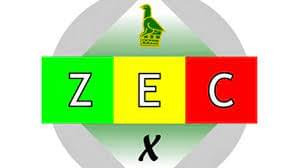The shrinking of civic space and the enactment of stringent laws have affected the participation of civil society organizations (CSOs) in the electoral processes ahead of the 2023 general election in Zimbabwe.
This was revealed during an online discussion on the X platform hosted by Accountability Lab to discuss issues of accountability and governance in the 2023 elections.
Speaking during the meeting, the Principal of Tsunga International Law Chambers, Arnold Tsunga, said there has been sustained pressure on civic space in Zimbabwe.
“There are concerns around civic and democratic closure in that there hasn’t really been open space for quite some time and that in fact there has been like a sustained pressure on civic space people not really being allowed to enjoy fundamental freedom that would allow them to have civic participation and civic engagement in the meaningful way,” he said.
Tsunga said the result of this is that some areas have remained inaccessible to key stakeholders in elections, including political parties and CSOs involved in civic education and civic participation.
He cited the example of the Private Voluntary Organizations (PVO) Bill, which has not been signed into law but is being practically implemented in a way that prevents CSOs from effectively accessing communities to conduct civic education and civic engagement.
Samkeliso Tshuma, Director of The Girls Table, said the PVO Bill has had a chilling effect on CSOs, with many censoring themselves and failing to work in communities.
“The issue of the PVO bill, so many CSOs censored themselves,” she said. “I remember as Girls Table when we were doing our work in Tsholotsho last year, I remember one of the officers from the office of the president said to us if you guys keep doing this you know that we can invoke the PVO bill, we can call the president and to say the Girls Table they are conducting voter education or they are aligned to a certain political party.”
Tshuma said this has limited the participation of young people and young women in the electoral process.
“It is difficult to get the memorandums of association you know, you cannot operate in these communities unless you have a Memorandum of Understanding (MOU), but when I did my research I realized that you don’t need an MOU to work but when you go to these rural communities they tell you that you need MOU so such things restricted CSOs and other institutions to conduct electoral activities and this affects the participation of citizens specifically young people because we work with young people and young women,” she said. CITE









